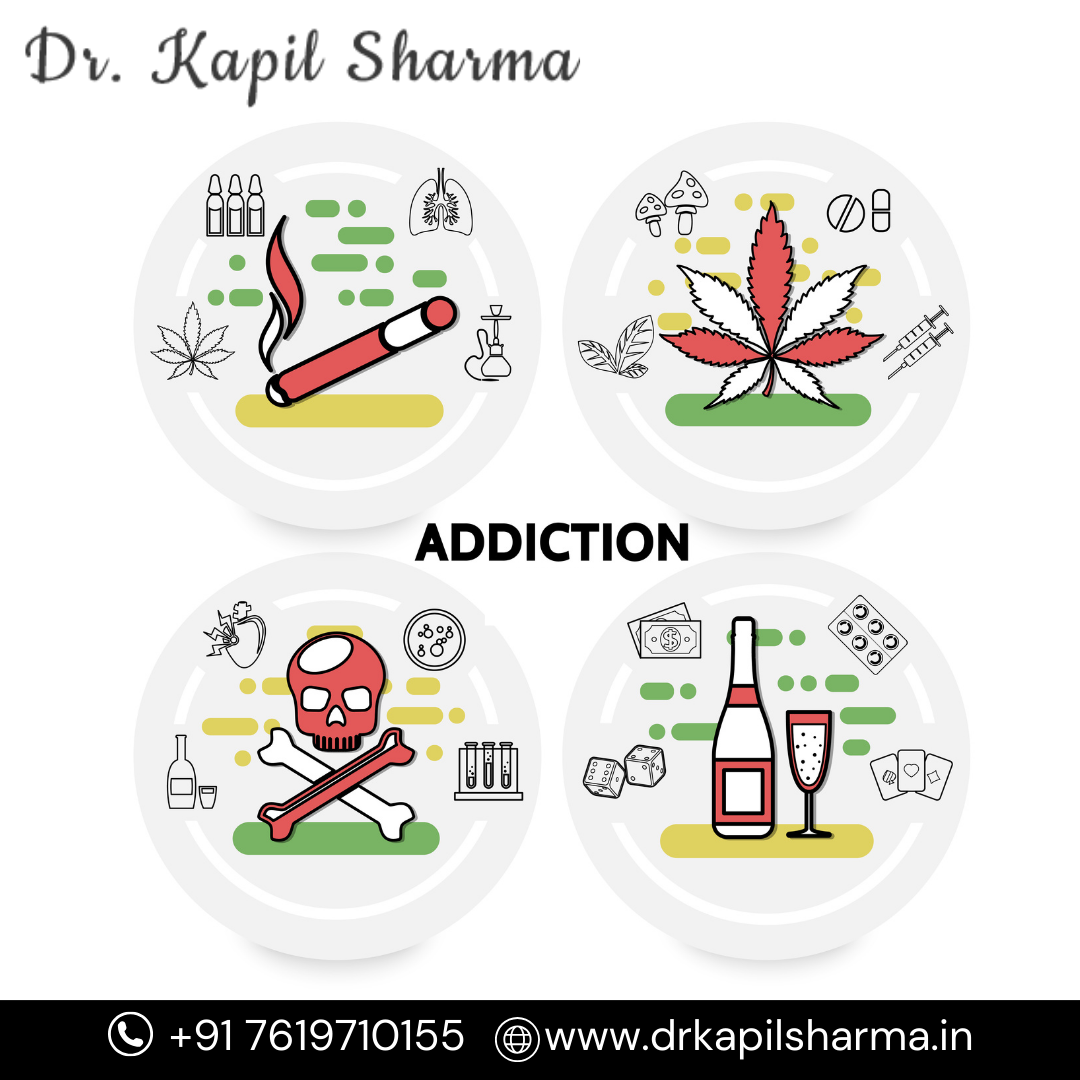
What Role Does Mental Health Play in the De-Addiction Journey?
Addiction, a chronic relapsing disorder characterized by compulsive engagement in a substance or behavior despite harmful consequences, is often perceived as a standalone issue. However, this notion belies the profound connection between addiction and mental health. Mental health conditions, such as anxiety, depression, and post-traumatic stress disorder (PTSD), are highly prevalent among individuals with addiction, with estimates suggesting that up to 60% of people with substance use disorders also have a co-occurring mental health disorder.
This co-occurrence is not merely a coincidence; rather, there is a complex interplay between mental health and addiction that significantly impacts the de-addiction journey. Understanding this intricate relationship is crucial for developing effective and holistic treatment approaches that address both the underlying mental health issues and the addictive behaviors.
Unveiling the Underlying Mechanisms: How Mental Health Influences Addiction
Mental health conditions can contribute to the development of addiction in several ways:
- Self-medication: Individuals with mental health disorders may turn to substances as a means of self-medicating to alleviate negative emotions, such as anxiety, depression, or trauma-related symptoms.
- Escape from Stress and Pain: Substances can provide a temporary escape from the overwhelming stress and emotional pain associated with mental health conditions.
- Seeking Pleasure and Reward: The brain’s reward system, which is involved in motivation and reinforcement, is dysregulated in individuals with addiction. Substances can trigger the release of dopamine, a neurotransmitter associated with pleasure and reward, creating a reinforcement cycle that perpetuates addictive behaviors.
The Vicious Cycle: How Addiction Exacerbates Mental Health Issues
Addiction, in turn, can exacerbate mental health symptoms, creating a vicious cycle that is difficult to break without addressing both conditions simultaneously:
- Impaired Impulse Control: Addiction can impair an individual’s ability to control their impulses, making it more challenging to manage emotions and resist cravings.
- Brain Changes: Substance use can lead to neurobiological changes in the brain that increase susceptibility to anxiety, depression, and other mental health disorders.
- Social and Emotional Isolation: Addiction can lead to social isolation, strained relationships, and financial difficulties, all of which contribute to worsened mental health.
Integrating Mental Health Treatment into Addiction Recovery: A Path to Holistic Healing
Addressing underlying mental health issues is an integral part of achieving long-term sobriety and successful addiction recovery. Integrating mental health treatment into addiction recovery programs offers several benefits:
- Identifying and Addressing Root Causes: By understanding the underlying mental health issues that contribute to addiction, Best Psychiatrist Doctors in Jaipur can tailor interventions to address the specific needs of each individual.
- Improving Treatment Outcomes: Studies have consistently shown that individuals who receive dual diagnosis treatment (addressing both addiction and mental health) have better long-term sobriety rates and reduced risk of relapse.
- Promoting Overall Well-being: Addressing mental health issues not only improves the chances of successful addiction recovery but also enhances the overall well-being and quality of life for individuals struggling with substance use disorders.
Approaches to Mental Health Treatment in Addiction Recovery
Several effective mental health treatment modalities are commonly used in conjunction with addiction treatment at De-Addiction Centres in Jaipur:
- Cognitive Behavioral Therapy (CBT): CBT helps individuals identify and modify negative thought patterns and behaviors that contribute to addiction and relapse.
- Dialectical Behavior Therapy (DBT): DBT teaches individuals mindfulness, emotion regulation, and distress tolerance skills to manage difficult emotions and cope with cravings.
- Medications: Antidepressants, anxiolytics, and mood stabilizers may be prescribed to manage specific mental health symptoms and reduce the risk of relapse.
- Group Therapy: Group therapy provides a supportive environment for individuals to share experiences, receive peer support, and learn from others in recovery.
The Ongoing Significance of Mental Health Support
Mental health support should not end when an individual completes addiction treatment. Ongoing therapy, support groups, and self-care practices are essential for maintaining long-term sobriety and preventing relapse. This ongoing support helps individuals develop resilience, manage stress effectively, and maintain a healthy emotional state, reducing the likelihood of returning to addictive behaviors.
De-addiction specialist in jaipur play a vital role in helping individuals struggling with addiction overcome their challenges and achieve long-term sobriety. By providing comprehensive treatment that addresses both the addictive behaviors and underlying mental health issues, de-addiction specialists in jaipur empower individuals to reclaim their lives and embrace a healthier future.

